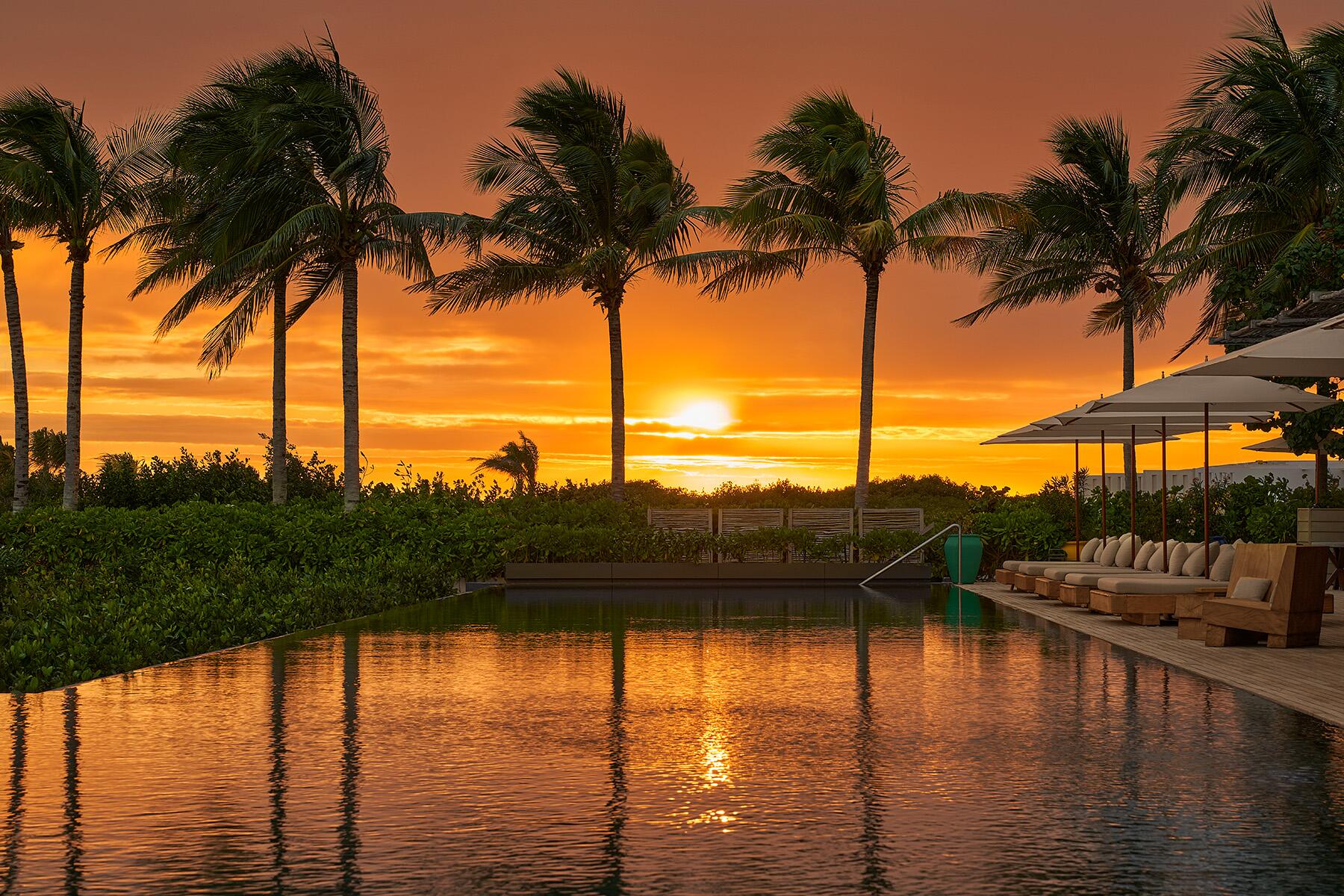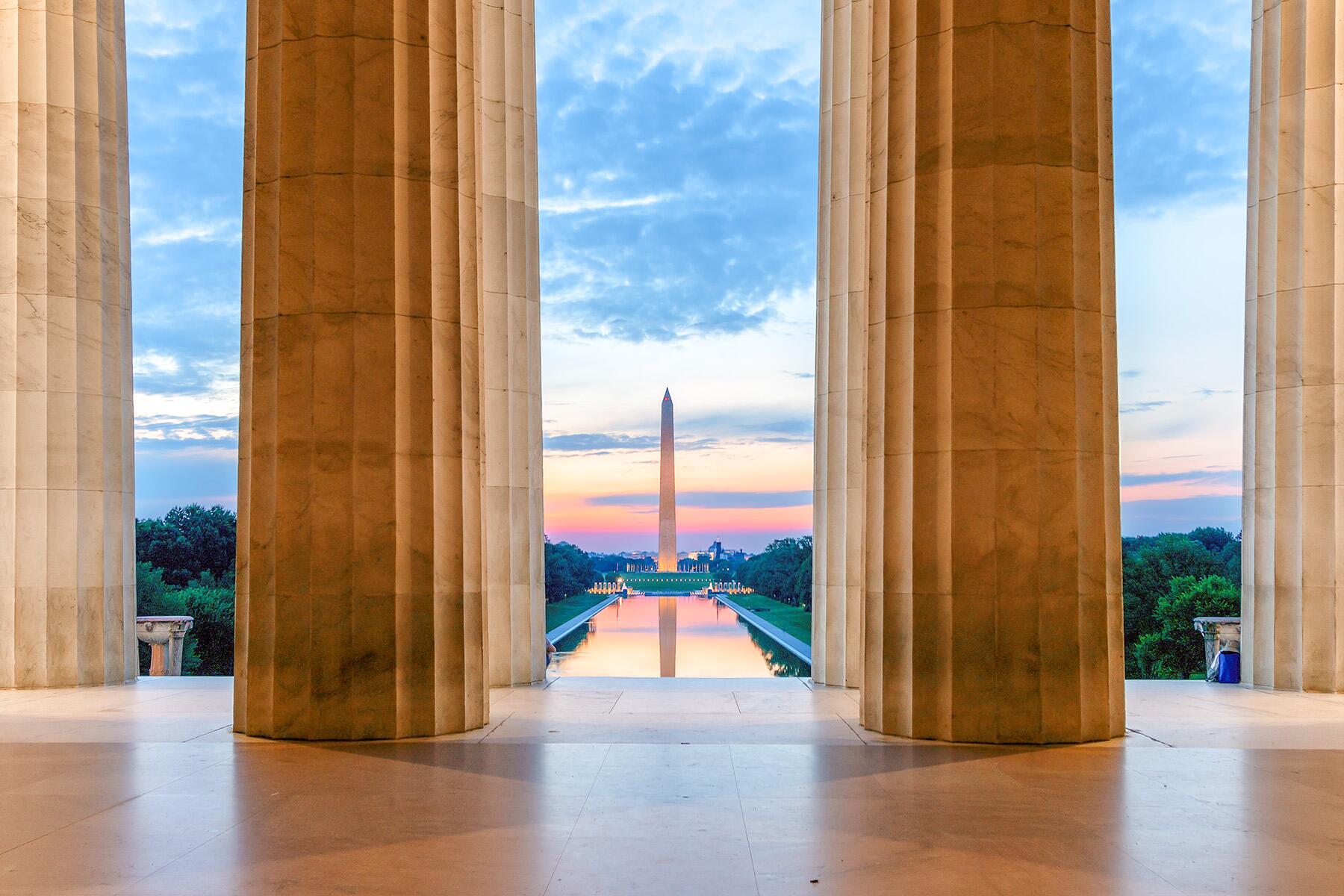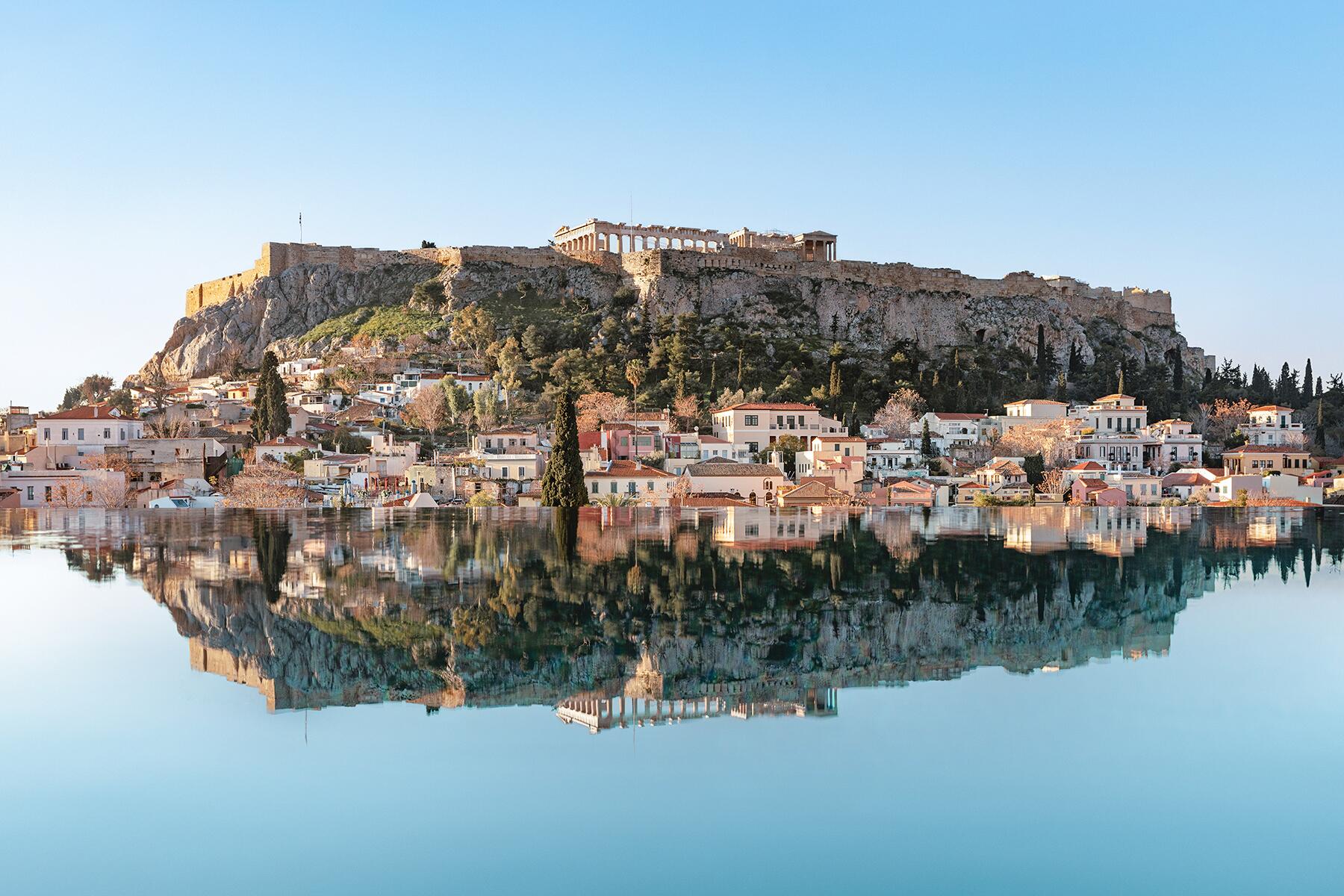Dan Flannery, Senior VP and Managing Director of EDITION Hotels talks about the future of travel, how hotel stays have changed, and expanding the brand during a pandemic.
Starting at just 18 years old, Dan Flannery joined Marriott in 1981 at the opening of the original Gaithersburg Marriott as a busser and waiter. Today he sits at the helm of Marriott and Ian Schrager’s luxury boutique brand, EDITION, and talks with Fodor’s Travel about what it’s like to open hotels in the middle of a pandemic, what travel trends he’s seeing in the resurgence, and what, if anything, will be forever changed due to COVID-19.
Tell me about your job and your day to day and how has your role changed because of the pandemic?
I have brand and operations responsibilities. The general managers of all EDITION Hotels report to me for opening and pre-opening stages with a dotted line to Marriott.
It was pretty much a shock to the system for Marriott to lose 90% of their revenue around the world. We weren’t structured for that, and so we had to furlough and lay off almost all of our staff. The only staff I kept on were ones that were needed to open Toranomon EDITION in Tokyo because we opened that in September of last year. Everything else really got put on hold. All the hotels except for three closed and almost all of their staff were on layoffs and furloughs.
Recommended Fodor’s Video
I didn’t travel after coming back from Tokyo—I got back February 23, 2020, and we thought it was safe when we took off from what we heard but then they said Japan is going into a different threat level, when you get back you have to quarantine. We thought we’d have to quarantine for 14 days and we could keep going with the openings that were coming in a matter of weeks. Everything then changed and I didn’t travel again on a business trip until [last month] to Reykjavik, Iceland.
And you managed to open a hotel while in quarantine?
The only opening we had was in Japan, we couldn’t get in the country, so we actually directed that opening virtually from the sound stage that we have in New York that has cameras and broadcast capabilities in our hotel there. We were starting work at nine at night and participating through broadcast, and sleeping on banquettes, and getting up for wrap-up meetings in the evening for them, which was 4:30 in the morning for us—it was pretty crazy.
You essentially found a way to be there without being there.
There is not much more important in this business than opening and getting a hotel off the ground. If you really get it off in the right direction, you don’t really have to go back and fix it and figure out what isn’t working. So we really try to drop everything that we’re doing and move into a new hotel as it’s getting opened and my team will stay there for two weeks and direct the opening ourselves. We opened Times Square which is in our backyard in New York but we left our homes and checked into the hotel so that we could be there around the clock with the team to make sure that we got it off the ground right. So it was tough for us to not be able to be there [in Tokyo] but we wanted to participate virtually as much as we could. Some of it worked, Ian [Schrager] did a pretty great job directing the styling of the spaces and the final light settings, all the stuff that happens in the last few months of a project on the operations it’s hard to engage in services when you’re not there—it’s hard to open a restaurant when you can’t taste the food.
Other than the food, decor, and lighting. What else factors into your barometer of opening in the “right direction?”
When we do the press tours, it’s interesting to be able to watch their reaction and see what they’re responding to and impressed by and what they walk right by. With the staff we’ll participate with the trials, the rehearsals as we call them, we’ll do test meals or mock arrivals with the bellmen to see who is comfortable, who is proficient at their job…what areas are a struggle and it’s just harder to gauge that when you can’t touch it or feel it in person.

EDITION hotels are slated to open eight new locations all over the world this year.
Eight that we’re targeting to make it this year. The only one that we’re sure of will be Rejkivik and there’s a bunch that will be really close to the end of the year. We don’t control the construction so it’s hard to say when they’ll actually be finished, but Rejkivik will definitely be open in the fall, and it’s going to be a great hotel.
The other ones that I think have a pretty good shot are Rome, which is progressing pretty well. It’s an old historic building that’s making good progress. Dubai is moving pretty well. Ginza is a second one in Tokyo we’re doing with the same owner…and originally they were trying to get that finished before the Olympics but there’s been so many delays with not only construction but materials that need to be fabricated, manufactured… Everybody’s been shut down all over the world. It’s probably costing all of these owners 10 months to a year on the schedule with some of these projects. I don’t think that Ginza will make it by the end of the year but it will be close. Dubai I mentioned, should be done by the end of the year, I would hope.
Then Madrid, if I had to guess, will be early in the first quarter next year. Tampa will be next year. Riviera Maya could be in that range. Doha will be later next year. They were going to open before the World Cup of September 2022 but they’re no longer in consideration to try and make it in 2021.
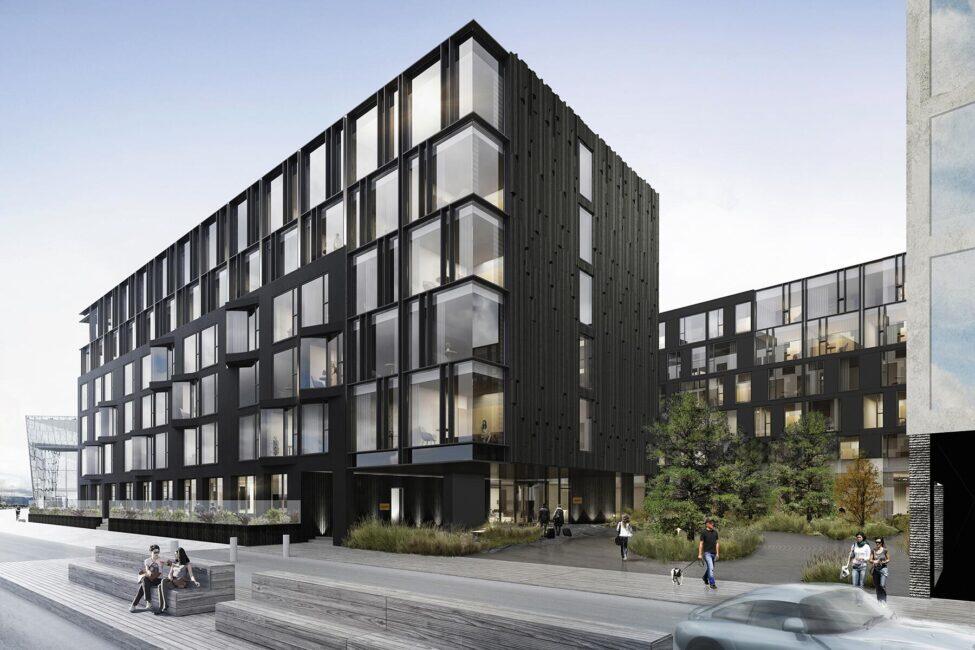
What were some plans that you had to change and pivots and hard decisions you had to make in the past year?
Our model is that we’re managing hotels that other people own. Third-party owners. So we’re not involved with the constructions, so if you’re the owner and you tell me I’m going to have my hotel finished by September 15 of this year and I want to open it by November 1, then I can do a timeline of what training will take place and how we’re going to get it styled. A lot of the hiring is done 10 to 12 months before the hotel opens. So we’re hiring based on projected openings and then all of a sudden, when there are delays, there could be significant cost overruns so we’re trying to pump the breaks on hiring or completely freeze hiring for a while or sometimes trying to place some of the team on other projects so that we could save the cashburn.
Put them on projects to work at remotely?
Sometimes, yeah. We had a hotel in Abu Dhabi that we opened in 2018 and it got delayed and we had a project in Bodrum, Turkey, that opened the same year and was originally opening later but they sped up and wanted to open a season earlier so the property team in Abu Dhabi started a lot of the critical path work that we needed and help start to identify recruiting employees and get [food and beverage] contracts done with partners, getting all the operations in order. A lot of that work doesn’t matter where you’re doing it from so it saved the operating costs in both places.
Another thing, in the case of Tokyo, was the first hotel that we opened with not everything being open. We have two restaurants there and we only opened one. We have a beautiful bar on the street level that we didn’t open yet because it was just not the right environment, whether it’s allowed or not allowed, to have a bar we want to have open and pack a bunch of bodies into. So it’s less ideal for us—we love to make a splash—Ian [Schrager] says you don’t have the curtains up on a Broadway show until you have all the acts done, and so we like to open everything with a splash. All done and we ideally like it to feel like it’s been open for a year and, in these cases because of local regulations or sensitivities, to not look like we’re irresponsible or in other cases, [due to ] the operating cost of the owners, we’ve had to approach an opening like that differently.
Do you abide by local regulations or CDC or WHO or all of the above?
All of the above because no matter what our preference may be, we’re always going to make sure we observe local regulations. We’re just being cautious—in Miami, the nightlife scene is coming back strong there. It’s busy. We haven’t opened ours yet. If something happens we don’t want to be premature, we don’t want to be seen as the ones that moved too quickly.
How do you decide, for example for the EDITION Miami, how do you decide when to fully reopen? What’s the barometer test here?
Some of it’s art, some of it is science. We’re watching what the local regulations are, what the community seems to have demands for, what time of the year we’re in—it’s approaching the end of the season in Miami now so it’s not like we need to do something really aggressive for the summer but we’re already starting to talk into October and starting to approach Art Basel in December to plan for a good program for then.
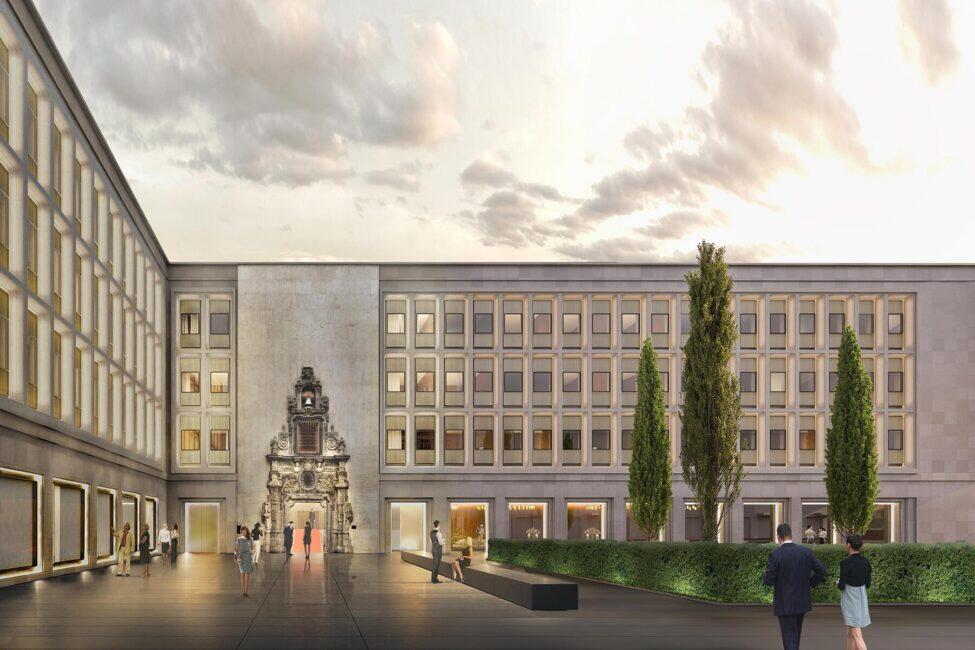
How are the hotels making guests feel comfortable and safe across the board?
It’s interesting how this has changed. The hotel guest is not different than what we went through personally. In the beginning, I’m sure you were wearing gloves and spraying packages down outside. People were so unsure about what was going to happen to you if you got this and how you catch it—first it was masks aren’t required, then they are required, then some people are wearing two masks, but in the beginning, there was a lot of sensitivity and people were looking for us to enforce the rules. They wanted to see the signs out front and do social distancing and plexiglass barriers and enforcing mask-wearing and capacity in the elevators and a certain number of people per table at restaurants and over time, people have become less cooperative because they want to get back to their normal lives. So if they’re a group of four, they want to push two tables together because they’re a family, if you ask them to wear a mask they’ll basically toss them back at you saying I’m vaccinated, I already had it, so we’re seeing it swing pretty aggressively in most markets where people want to get back to their normal lives. Bodrum last weekend we had a busy weekend, and a lot of the guests were just not interested in cooperating. The big push now is that people are starting to feel more safe that they want to get back to living their life.
Is there a right way to address those people pushing back? It’s complicated as I’m sure you want to cater to your guests, too.
When you used to be able to smoke indoors but once we passed the indoor smoking ban some people [pushed back], but you also have to be sensitive so you can’t afford to have your hotel shut down for not following local ordinances. You have employees that you’re also putting at risk—they’re probably your first priority. They’re putting themselves at risk by coming to work, you can’t afford to not enforce the rules and put their health at risk.
How have the pressures on the hotels changed during this time?
As the mix of business has changed it has changed the pressure on hotels. Our business in hotels traditionally comes from leisure travelers that are going on pleasure trips or big group business or business travel where the company is paying. With group business, which will be the last to return, they’re coming for something else—they’re going to meetings or off-sites or tours…they’re in, they’re out. Business travelers could check in really late at night and often check out early in the morning and less likely to use your pool and beach and spa and resorts, and that’s slower return than leisure. Leisure business has been unbelievably strong. People who can’t leave the country and haven’t been able to travel and have hotels open, they are clamoring to go to different places—in some cases, their patterns have changed. We’ve gotten inquiries from some of our travel industry partners who have wealthy travelers who can work remotely now and their kids are studying remotely. Why be in Boston in the winter when you can go to Miami? They’re saying, “Get me a villa or get me a place for three weeks or three months.” Make sure they have a restaurant open and the spas open. The leisure guests use the hotels and the restaurants more, the hotel more, they’re more likely to check out late and check in early.
Are there new programs you’re implementing for the leisure travelers who are now working remotely?
Our biggest thing is that we’d negotiate a better rate for a longer-term stay.
Tell me about the successes you’ve had in the past year?
The Sanya, China, [EDITION] will never have a better year I think than we had this past year. You have wealthy Chinese travelers who can’t leave the country and it’s not a work destination for a country that size so we had a record year. It just had a phenomenal year. Bodrum is a seasonal resort—they open every May and close at the end of October and they had a phenomenal year last year in 2020. Mostly business and then Russia opened up for incoming travel and the UK opened up during the season and they had a great year—people wanted to be in warm weather by the resort, outside and they’ll have another good year this year. City hotels, two in New York and one in Barcelona, were the last to open. They’ve come around last. Every market has its own dynamic. Fifty-five percent of our business in London comes from the U.S. and the borders are open, it’s going to affect them. Spain just opened their borders and 65% of the boarders in Barcelona were in the U.S. and you look at the opposite dynamic, Times Square has a lot of business travel and a lot of international tourist travel and drive-in business that’s related to Broadway, and Broadway’s shutdown and international travel is shutdown so every hotel is different story based on what’s going on that’s affecting that hotel.

Marriott had to furlough a lot of the employees. Did they do anything to help their workers during the pandemic?
We’ve extended benefits coverage for employees on furlough two or three times, the latest is now through July 9 this year. It’s been really helpful, they’ve fared much better than most markets. The other thing that Marriott did, they started working with big companies that were finding a surge in the business—retailers, Amazon, Walmart—some of those grocers were all of a sudden dying under the strain of business and looking for more workers, so Marriott partnered with those businesses to find job assistance and job placements for those employees who were displaced and we’ll probably regret it because business is coming back. We can’t hire employees fast enough to fill the needs that we have. It’s amazing how things have changed. We couldn’t lay off fast enough to survive last year and now we can’t hire fast enough to keep up with the business that’s returning.
Do you think things are going to go back to being normal or are things changed forever?
It’s easier to say this now. Ian was quoted saying this very often early in the pandemic. It was so popular in the beginning for people to talk about the new normal, and things will never be the same. The number of times I’ve heard this from 9/11 “Lower Manhattan will never be the same, The Stock Exchange will move out of Manhattan, business will never recover,” or New Jersey Superstorm Sandy devastated the Jersey store…things always come back. People have been going out to restaurants for 250 years, and they’re going to want to go to restaurants after we’re done. The spots will reopen and be busier than they were before because people are social animals and they want to go back out, be around each other. We’re seeing it already. People want life to go back to what it was before and I’m a big believer that it will.
What’s the future for EDITION Hotels?
We only have 11 hotels that are open so a lot of people haven’t experienced the brand yet but we have 15 that are under construction today and eight of those should open within the next 12 to 16 months so it will give us a big footprint and give people more of a chance to experience it. It is a labor of love for me and I’m biased but it’s the most interesting thing in the business right now. Forbes just called us the Hottest Hotel Brand in the World, so I agree with them.
What’s the best part of your job and the hardest part of your job?
They’re the same thing. Opening a hotel is the hardest thing that we do and the most fulfilling thing we do. I’ve had people afterwards that say, “That was amazing but don’t ever ask me to do that again.” A number of us love that challenge of taking this idea of our brand and figuring out how to make it work in a different culture, in a different language, and appeal to the mix of business that’s available and coming into that market. It’s really fascinating, but not for the faint of heart.
What are you most looking forward to opening next where you’re not already in development? Is there a place on your hotel opening bucket list?
Yeah, we have not been able to land a site in Paris, which I think would be amazing. Would love to be in Australia, which we haven’t done. We’re going to have two great resorts on the opposite coasts of Mexico—one in Riviera Maya and one in Riviera Nayarit by Puerto Vallarta—we’ve done very well in resort markets, which was a little bit of a surprise for a lot of us because a lot of what Ian had done initially was in urban environments, but it’s played very well in resorts, so I’d love to do a ski resort, somewhere in the West or the Swiss Alps, those are high on my list.
